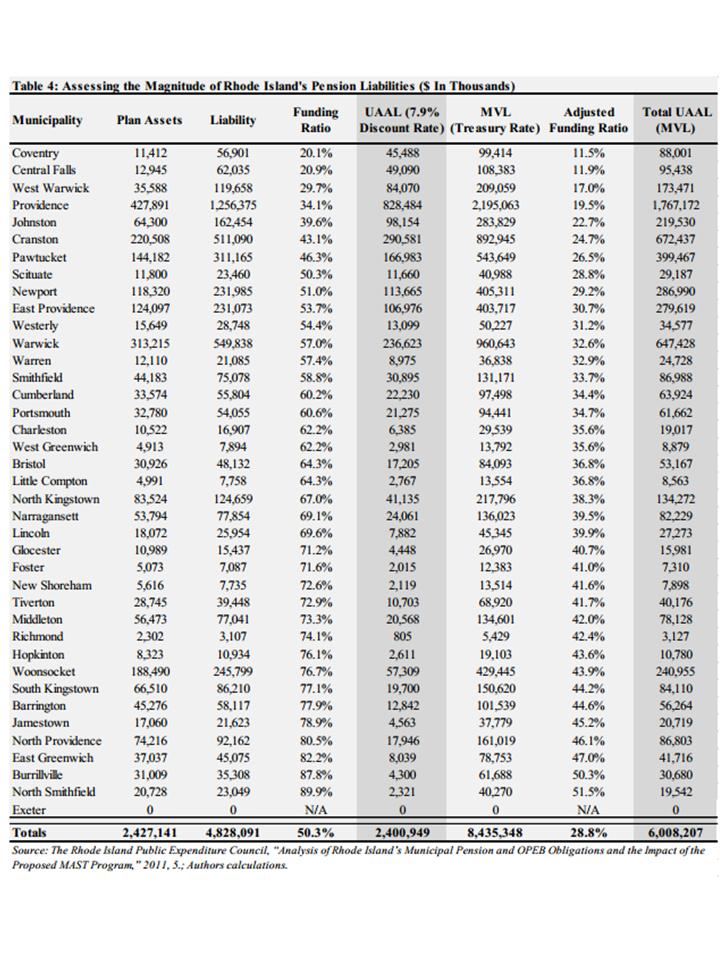All Cities and Towns May Already be in “Critical Status”
COMMENTARY: by Mike Stenhouse and Rich Danker
The centerpiece of the governor’s proposed legislation to let municipalities’ independent pension plans suspend annual cost of living adjustments (COLA’s), includes a ‘60% critical status’ test that may be irrelevant. While we support the concept of providing “tools” to Rhode Island municipalities, the distinction of which localities are in crisis – and which are not – may be an unnecessary exercise.
According to a study published last November by Eileen Norcross, senior research fellow with the Mercatus Center at George Mason University and a member of the Rhode Island Center for Freedom and Prosperity’s national pension task force, the true scope of the unfunded liabilities belonging to the 36 Rhode Island cities with their own pension plans is $6 billion rather than the reported $2.4 billion, if the more accurate “market value” or private-sector rate is utilized instead of the the less accurate “assumed” rate, commonly used by most government entities.
Utilizing private-sector valuation rates, the pension liability for EVERY locality in Rhode Island is funded below 60%, according to the Mercatus report. We question, therefore, why there should even be a “critical status” test in the legislation.
The table below, from the Mercatus Report, shows how the true scope of the unfunded liabilities, along with the related funding ratios, are dramatically altered depending on which rate is used. (for each city – compare column 5 with column 8; and compare column 4 with column 7)
How municipalities account for their pension liabilities is of significant importance. We all remember the public outrage when Enron and other corporations were exposed for conducting fraudulent accounting practices … and rightly so. But why should we be any less concerned about accounting malpractice when it comes to our public pensions?
Using a valuation rate that is more in-line with the private-sector, all municipalities in the Ocean State should be provided with the tools the Governor proposes, and we should spare ourselves the drama of picking and choosing qualifying and non-qualifying localities.
Rich Danker is the project director for economics at American Principles Project in Washington, D.C . Mike Stenhouse is the CEO for the Rhode Center for Freedom and Prosperity. Both are members of the Center’s national task force for pension reform in Rhode Island.


Leave a Reply
Want to join the discussion?Feel free to contribute!